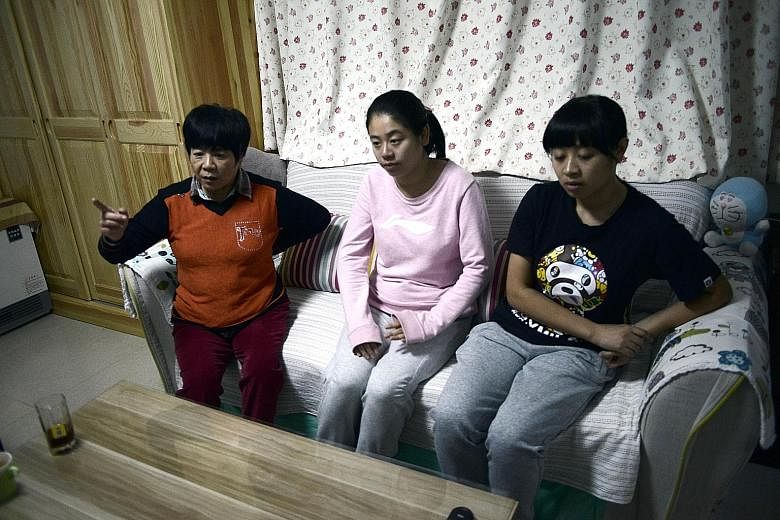BEIJING • Ms Li Xue was born in Beijing and has been living there all her life. But like millions of others conceived in violation of China's one-child policy, as far as the state is concerned, she does not exist.
She has no right to schooling, healthcare or a formal job. Without a birth certificate or identity papers, she is a "black child", an alien in her own country - unable to join a public library, get legally married or even take a train.
"I was born here, but I don't have any of the rights of a Chinese person," she said.
"Whatever I do, I'm blocked and have difficulties. There is nothing in China that proves whether I even exist or not."
Last week, the Chinese authorities announced the end of the hugely controversial policy, which restricted most couples to a single offspring. Instead, all families will be allowed to have two children.
Often brutally enforced with abortions and sterilisations, the rules have had complex and enduring repercussions.
Ms Li's parents already had one daughter - born with the right paperwork - and were on long-term disability leave from their jobs as factory workers when her mother accidentally fell pregnant.
They did not want a second baby, she said, but she was too ill to terminate the foetus.
Families who violate the rules must pay a "social maintenance fee" to legalise their children and secure them a "hukou", communist China's all-important household registration, which ties crucial government services to one's official place of residence.
The authorities set Ms Li's at 5,000 yuan (S$1,100) - far beyond the 100 yuan a month in benefits her parents lived off, even before her mother was sacked once her factory learnt the news.
Now 22, Ms Li has always existed in an administrative netherworld. She realised she was unlike other children at the age of six, when neighbourhood playmates were sent off to school and warned off her company by their parents.
"I began to see that my life was entirely different from those around me and it was because I had no hukou," she said.
Her mother Bai Xiuling, 59, said: "She used to cry and tell me, 'Mum, I just want to go to school!', but there was no way for her to do so."
China's official population stood at 1.37 billion at the end of last year, and 2010 census data showed that the country had 13 million "black children" like Ms Li - more than the entire population of Portugal.
Ms Li's sister Li Bin, eight years older, eventually taught her to read and write. But while children her age were off at lessons, Ms Li was shuttled out every day to stand outside government buildings, where her parents hoped someone would hear their pleas.
"We went countless times. Pretty much every day, weather permitting, sometimes twice a day," said Ms Bai.
The family said they have endured a decade of police surveillance, including several beatings for the parents.
For now, Ms Li Xue has found work at a restaurant willing to look past her undocumented status.
"For the first time, I've been able to be judged on the basis of what I can do - my skills, not my status - and it feels great," she said.
But she added: "This job is temporary. My future, I cannot even imagine it."
AGENCE FRANCE-PRESSE

